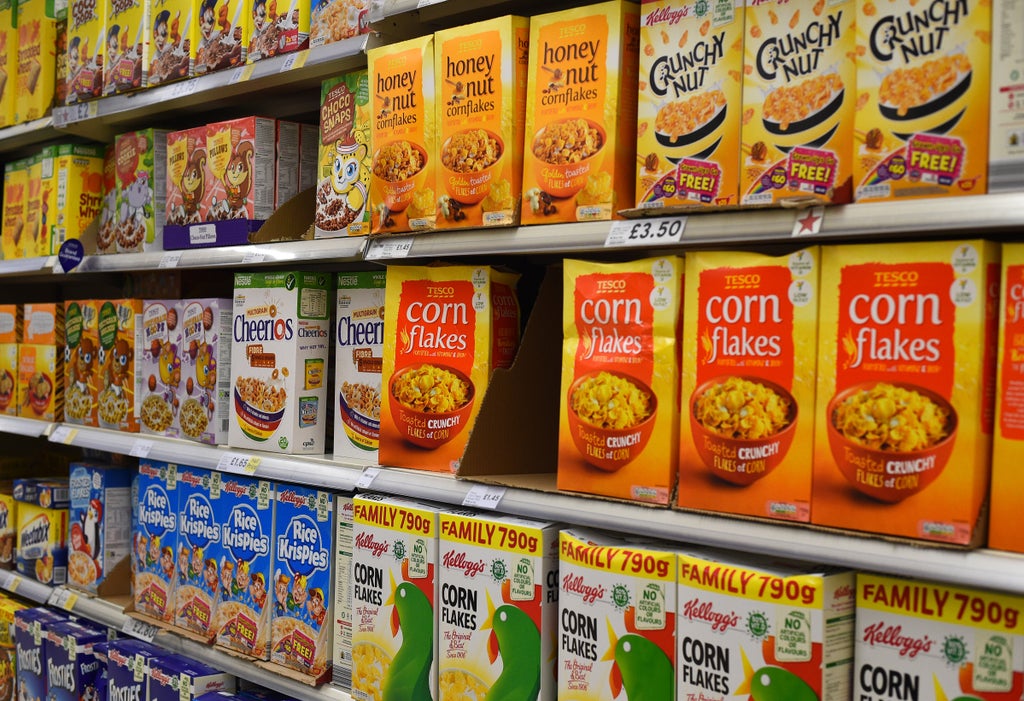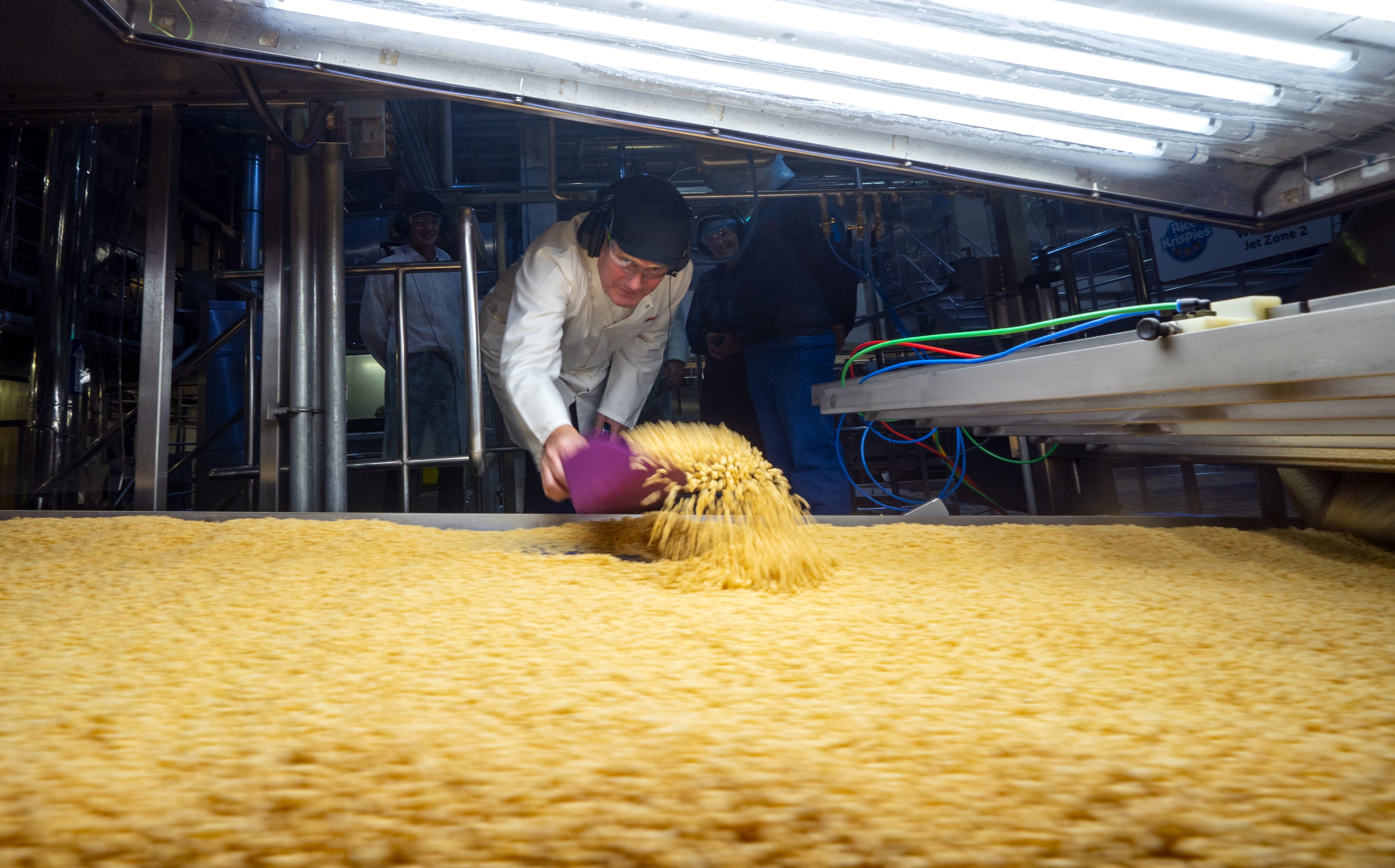
New rules restricting the promotion of high salt and sugar foods are unlawful and fail to consider that people “overwhelmingly” eat cereal with milk, breakfast food giant Kellogg has told the High Court.
The Coco Pops and All-Bran manufacturer is bringing legal action against the Department for Health and Social Care (DHSC) over new regulations due to come into effect this October.
The regulations will restrict where certain types of food are permitted to be displayed within supermarkets or on their websites, and will also ban multi-buy promotions of foods deemed high in fat, sugar or salt (HFSS).
In-store promotion of HFSS foods will be limited when the rules come into force, meaning they will not be allowed to be featured in high-profile locations such as checkouts, store entrances and aisle ends.
At the start of the case at the High Court in London, Kellogg argued the regulations are unlawful because the nutritional value of breakfast cereals will be assessed by their dry weight as sold, rather than how they are eaten.

On Wednesday, Tom Hickman QC, for the cereal manufacturer, said: “The regulations have, of course, a very laudable and valuable objective of seeking to reduce childhood obesity, and it is an objective that Kellogg strongly supports.”
The barrister added the new regulations do not take into account that cereals “are overwhelmingly consumed with milk” and therefore does not factor in the nutrients added.
Kellogg has claimed that more than a quarter of all milk in the UK – 28.4% – is consumed with breakfast cereal.
In written submissions, Mr Hickman said: “It is self-evident that breakfast cereals are not eaten dry. They are not designed to be eaten in that way, they are not marketed to be eaten in that way and they are not in practice eaten that way.”
Foods will be assessed by an algorithm known as the nutrient profiling model (NPM) – developed by the Food Standards Agency nearly two decades ago – used by Ofcom to regulate food advertising to children.
Mr Hickman told the court that other dry products designed to be mixed with liquids are assessed “as eaten” with “the sole exception being breakfast cereals”.
“Other examples in the evidence of dehydrated products and how they are prepared demonstrate it is not simply a question of adding water or milk,” he said.
The barrister said this included the addition of sugar to rice pudding, salt to dried pasta, and soy sauce to dried noodles.
“No-one actually weighs out 100g of pasta and one litre of water,” Mr Hickman added.
Mr Hickman later said that with other products, there was an attempt to factor in that they were consumed in a different way than how they were found on the shelf.
“For breakfast cereals, for no reason, there is no attempt to make any accommodation of the fact that they are not eaten in the way they are sold,” he added.

DHSC is disputing the claim and is due to begin its oral arguments on Thursday.
In written submissions, Sir James Eadie QC – for DHSC – said the Government has “a broad margin” to decide policy related to public health and that the decision was “plainly lawful”.
Sir James wrote: “The thrust of Kellogg’s objection appears to be that, although Kellogg’s HFSS cereal products are intrinsically unhealthy as sold in the packet they may, when consumed, provide a route to the consumption of a healthier product.
“It does not appear to be Kellogg’s position that the consumption of semi-skimmed milk will contribute in any way to a reduction in childhood obesity or that mixing their HFSS cereals with milk will somehow reduce the sugar that is consumed.”
Sir James also said that a previous review of the NPM system had led to a decision to keep the 100g “as sold” measure “to avoid complexities arising from differences in serving sizes across different cereals and age groups”.
He continued: “This approach is an objective and transparent way of identifying whether individual food and drink products are healthier or less healthy on the basis of their nutritional composition.”
Sir James later said the Kellogg’s cereal Frosties, which has 37g of sugar per 100g of dry product, is classified as high in sugar when assessed as sold but would be classified as a non-HFSS product if assessed with milk.
“Assessing Kellogg’s cereals ‘as consumed’ with milk would reduce the power of the NPM to distinguish healthier foods from the less healthy foods which are of concern to childhood obesity,” the barrister said.
He continued to say that dry products like custard powder are “within reason” not eaten out of the packet and that when they are prepared in a standardised way, “this results in a predictable product”.
The hearing before Mr Justice Linden is due to finish on Thursday with a decision expected at a later date.







